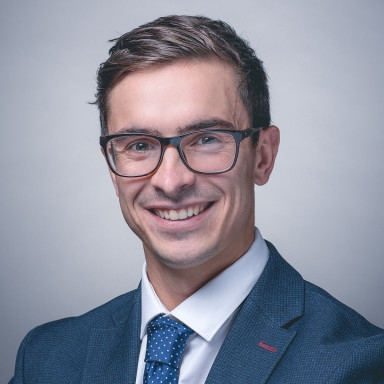Spencer Adair and Malcolm MacColl are seasoned investors, and both joined Baillie Gifford over 20 years ago
The managers look for companies across three growth categories: stalwarts, rapid, and cyclical growth
The trust has performed well since Baillie Gifford’s Global Alpha team took control in 2015, but has had periods of weaker performance when growth investing has struggled
How it fits in a portfolio
Monks Investment Trust aims to deliver long-term growth by investing in companies at various stages of growth. The managers invest anywhere in the world, including higher-risk emerging markets, but they tend to invest more in developed regions like the US and Europe. The trust could be a building block for an adventurous investment portfolio or work well alongside other investments in unloved ‘value’ companies with recovery potential. Investors in closed-ended funds should be aware the trust can trade at a discount or premium to the NAV.
Manager
Spencer Adair took over as lead manager in May 2021 following the retirement of veteran manager Charles Plowden. Adair worked closely with Plowden having been deputy manager since 2015 and involved with the Global Alpha team since launch in 2005. Adair joined Baillie Gifford as a graduate in 2000 and became a partner in 2013. During his career he has worked across a variety of different teams including Japan, Europe and the UK.
Malcolm MacColl has been deputy manager since 2015 and worked with Adair for over 15 years. MacColl also joined as a graduate in 1999 and has been mostly focused on North American companies. Following Plowden’s retirement, MacColl was named joint senior partner at Baillie Gifford.
Helen Xiong was also named deputy manager in July 2024. She joined Baillie Gifford in 2008 and became a partner in 2020. Before becoming an investment manager in the Global Alpha team she had previously worked in the Developed Asia, UK, US Equity Growth, and Emerging Markets Equity teams.
The managers are part of the Global Alpha team which includes three analysts, one of whom is solely dedicated to Environmental, Social and Governance (ESG) analysis.
The managers also use a team of ‘scouts’ who are dedicated analysts, with at least 10 years’ experience, looking for investment ideas for the trust. These ideas are then discussed amongst the managers and key analysts. The managers also benefit from the wider resource available at Baillie Gifford which consists of over 100 investment professionals.
Process
The managers invest in companies that fall into one of three growth categories – ‘stalwarts’ that are already dominant in their industry and should keep steadily growing, ‘rapid’ often early-stage and innovative companies with big potential, and ‘cyclical’ companies whose growth tends to be tied more to the strength of the economy. They invest both in large companies and higher-risk smaller companies.
A fourth category – ‘latent’ growth – was also used to form part of the trust. These businesses tended to be more out-of-favour with recovery potential. After in-depth analysis of the trust and its four categories, the team found the latent growth portion had tended not to contribute as much to performance. As a result, they’ve decided to focus on the remaining three categories, which now each make up a greater portion of the trust.
As at the end of the trusts financial year, 30 April 2024, the growth stalwarts category and rapid growth categories both made up around 34% of the portfolio. The team have added the most number of names to the growth stalwarts category and this includes many from the US. Media company Walt Disney, healthcare company United Health Group and food safety company Neogen Corporation are some examples. They also sold several companies including German sportswear company Adidas and US cosmetic company Estee Lauder.
In the rapid growth company the team also made several changes over the trusts financial year. This includes investing in Danish healthcare company Novo Nordisk off the back of advancements in their weight-loss drug. They also added American defence company AeroVironment and technology company Mobileye. A number of companies was also sold including Chinese conglomerate Alibaba, US car manufacturer Tesla and US cloud computing company Snowflake.
The cyclical growth category marginally decreased to around 31% of the trust. The managers sold UK house builder’s Persimmon and Redrow. They also sold US financial company Charles Schwab. They bought 2 new companies in this category too, including Japanese conglomerate Rakuten and US marine manufacturing company Brunswick Corp.
As a global trust, the managers can invest anywhere in the world, but they currently find the most opportunities in North America with 60% of the trust invested there. The rest is spread across developed markets in Europe, the UK and Asia and higher-risk emerging markets such as China. In terms of sectors, the managers invest most in technology, consumer discretionary, and industrials.
The managers also invest in higher-risk unlisted (private) companies that aren’t listed on a stock exchange. Over half of their unlisted exposure is through the Schiehallion Fund, an investment trust managed by Baillie Gifford that invests in later-stage private companies, which currently makes up 2.6% of the trust. The managers won’t invest more than 10% of the trust in unlisted companies.
The managers use gearing (borrowing to invest), which can boost gains but also increases losses, so is a higher-risk approach. At the end of June 2024 gearing stood at 7%. They can invest in derivatives too which, if used, also adds risk.
Culture
Monks Investment Trust was established in 1929 and is part of the FTSE 250 index. The trust is managed by Baillie Gifford, an independent private partnership founded in 1908. It's owned by its partners, who work full time at the firm. This ownership structure means senior managers have a vested interest in the company, and its funds and investment trusts, performing well. Both Adair and MacColl are partners at the firm. We think this has helped cultivate a culture with a long-term focus, where investors' interests are at the centre of decision making. We also like that fund managers are incentivised in a way that aligns their interests with those of long-term investors.
While most of the ideas added to Monks Investment Trust are sourced from senior analysts, Adair also encourages more junior analysts to present ideas. This could encourage an open and collaborative culture.
ESG integration
All of Baillie Gifford’s funds are run with a long-term investment horizon in mind – they see themselves as long-term owners of a business, not short-term renters. So, assessing whether society will support, or at the very least, tolerate, the business model over the long term, and whether management will act as good stewards of shareholders’ capital is an important part of the investment process.
Dedicated ESG analysts sit with and report into their respective investment teams, and the firm’s ESG efforts are supported by a dedicated climate team, an ESG Services team (responsible for voting operations and ESG data) and an ESG Client team (responsible for ESG-related client communications). Individual investment teams are responsible for voting and engagement for the companies they invest in. Investment in controversial weapons is prohibited across the firm.
The firm reports all its voting decisions and provides rationale in situations where it voted against management or abstained, in a detailed quarterly voting report. There is also a quarterly engagement report which details the companies engaged with, and the topic discussed, and further engagement case studies are available on the website. All this information is brought together in the firm’s annual Stewardship Activities report.
Although the trust takes ESG into consideration with every company in the portfolio it is not an ESG fund.
Cost
The ongoing annual charge over the trust’s financial year to 30 April 2024 was 0.44% a marginal increase from last years ongoing annual charge of 0.43%. Investors should refer to the latest annual reports and accounts, and Key Information Document for details of the risks and charging structure. If held in a SIPP or ISA, the HL platform charge of 0.45% per annum (capped at £200 per annum for a SIPP and £45 for an ISA) also applies. The platform charge doesn’t apply if the trust is held in a Fund and Share Account, or in an HL Junior ISA.
Investment trusts trade like shares, both a buy and sell instruction will be subject to the HL share dealing charges.
Performance
Monks Investment Trust has delivered strong returns since the Global Alpha Team took over in March 2015. The trust’s share price has risen 180.31% between when they took over and the end of July 2024, ahead of the average trust in the AIC global sector which has returned 138.14%. Over this time the trusts NAV (Net Asset Value) has grown 174.18%*.
Adair and MacColl were deputy managers during this time, and directly involved in the investment decision making process, so we think it’s fair to attribute this track record to both them and previous manager Charles Plowden. Past performance is not a guide to the future though and investments fall as well as rise in value so you could get back less than you invest.
Over the trust’s financial year to the end of April, performance rebounded after a difficult 2022. The trust’s share price rose 19.14% compared to a 17.35% return of the average trust in the AIC global sector. Over the same period, the trusts NAV rose 17.59%.
The trusts exposure to private companies through the Schiehallion fund was beneficial over the year. The Schiehallion fund holds names such as rocket company SpaceX and media company ByteDance, who own TikTok, who have both performed well over the year. Media company Meta (Facebook) also contributed to performance off the back of an increasing demand for its advertising space as well as sensible cost control for durable future growth, both helping the share price increase.
However, the trusts investments in insurance and healthcare we among some of the biggest detractors to performance. Insurance companies AIA, Ping An and Prudential fell by an average of 34% over the financial year. The lasting effect that the pandemic has had on the Chinese economy and consumer demand has hurt share prices. The team has since sold Ping An and Prudential but kept AIA who they believe are best places to take advantage of the growth opportunities in China.
The trust has long-term performance potential, but periods of volatility should be expected. As always, we suggest investors build diversified portfolios with exposure to a variety of investment styles, sectors, countries, and asset classes. Plus, you should regularly review your investments to make sure they continue to meet your needs and objectives.
At the time of writing the trust trades at a discount of 10.80% however, on average over the last 10 years the trust has traded at a discount of 4.32%. The trusts’ board of directors have been very active in trying to lower the current discount and during the latest financial year purchased £173 million of shares.
Annual percentage growth
31/07/2019 To 31/07/2020 | 31/07/2020 To 31/07/2021 | 31/07/2021 To 31/07/2022 | 31/07/2022 To 31/07/2023 | 31/07/2023 To 31/07/2024 | |
|---|---|---|---|---|---|
Monks Investment Trust PLC | 13.87% | 27.84% | -26.30% | -1.35% | 16.87% |
AIC Investment Trust - Global | -2.22% | 28.18% | -10.13% | 4.44% | 19.54% |


